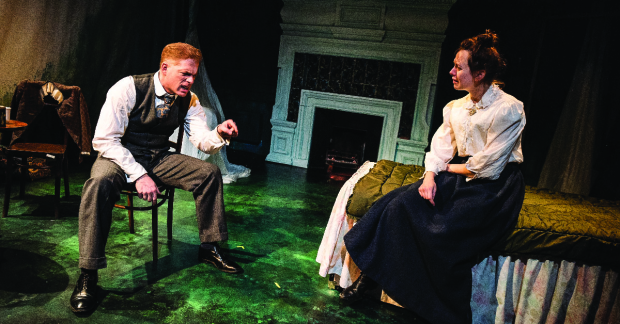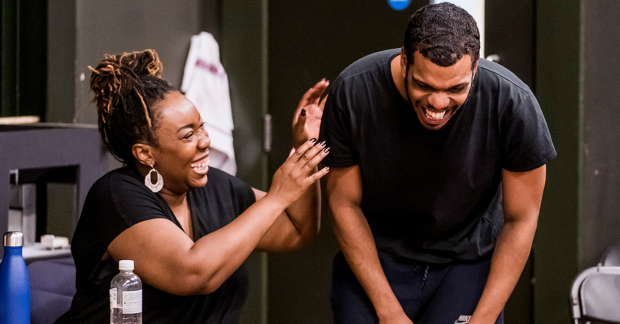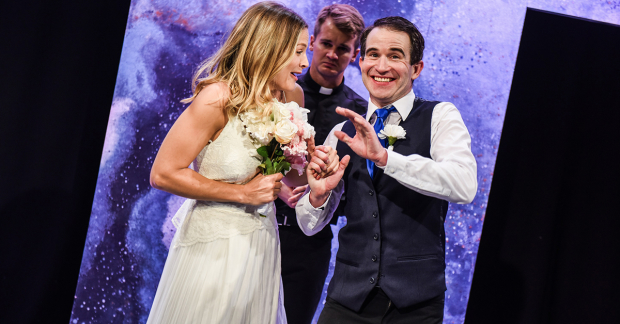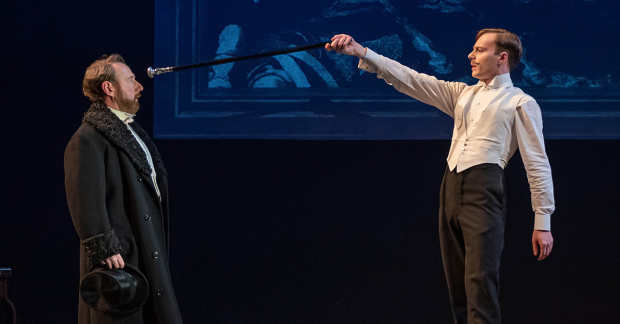Review: Tryst (Chiswick Playhouse)

© Savannah Photographic
Back by popular demand – if programme notes are to be believed – Tryst makes a return to the newly-reopened Chiswick Playhouse in their inaugural season. Karoline Leach's script is based on the real life story of George Joseph Smith, a serial killer infamous for the Brides in the Bath Murders at the start of the 20th century. Whilst the history behind the psychopath is terrifying and feels more than enough to inspire a decent play, it is disappointing that Phoebe Barran's production fails to provoke a befitting emotional response. Phrased another way, it is difficult to see what would be gained from restaging this story just a few years on from its previous run at the venue.
Fred Perry reprises his role as the serial killer George and it is easy to see why he has returned to the part he played three years ago. A dependable set of hands, it is more of a reflection upon the script's disappointments that Perry is not a more intriguing villain. George is a one-dimensional character whose violent instincts are revealed only in the final stages, ridding the play of any suspense. Perry and his co-star Scarlett Brookes (Adelaide) display solid chemistry, with some of their best collective work being the highly uncomfortable attempts made by the groom to consummate their marriage. Brookes plays the prudish side to her character with aplomb, which makes for distressing viewing when mixed with the villain's obvious carnal desires.
These are the scenes with danger and risk where, rather than drifting, the play actually reminds the audience this is a story they should care about. They should be interested in how far George will push to get what he wants and the limits to Adelaide's passivity, but too often this production allows time to elapse without saying anything at all. The real danger Adelaide unknowingly finds herself in is the exciting part of the story, not the endless deliberation over whether George steals a brooch that used to belong to her great aunt.
The biggest problem with this production is how wildly the script oscillates in terms of which character is in control at any one time. Too often does the balance of power swing completely without reason for the story to be believable, a damning fact given its roots in the serial killer's biography. Having successfully wooed Adelaide to the country and about to make off with her money, George is suddenly rumbled and ousted for the crook he is – but how does Adelaide find out this information? Rather than run a mile, she then offers him partnership in a hat store and tries in vain to make an honest man out of him. The whole situation is simply bizarre.
As a result, the finale is a total anti-climax. Save yourself an evening's disappointment and read Robert Browning's poem Porphyria's Lover instead, a story that portrays similar psychopathic themes but with all the risk, danger and shock factor that is missing in this play. A largely forgettable production.


















